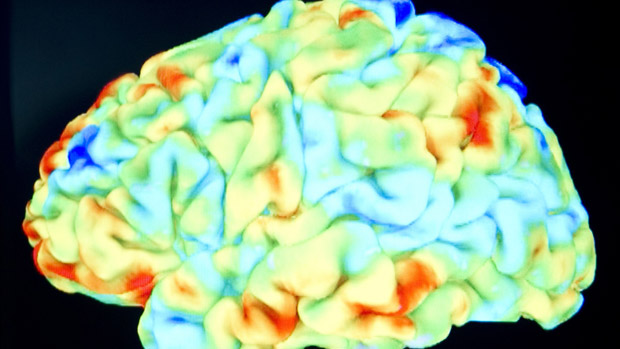Could brain zapping be the 'cure' for religious extremism?
Study finds that electromagnetic coil, which alters brain patterns, made participants less religious

A free daily email with the biggest news stories of the day – and the best features from TheWeek.com
You are now subscribed
Your newsletter sign-up was successful
Scientists believe that an electromagnetic coil that alters signals in the brain could be used to temporarily reduce extreme beliefs.
A study by the University of York and the UCLA in the US showed participants had less religious faith and viewed immigrants more sympathetically after being 'zapped' with the device.
The electromagnetic coil is placed on the scalp and used to perform a technique known as transcranial magnetic stimulation (TMS). This uses a magnetic field to interfere with the pattern of signals in the brain, and has been posited as a potential treatment for a range of mental disorders from depression to autism, reports Newsweek.
The Week
Escape your echo chamber. Get the facts behind the news, plus analysis from multiple perspectives.

Sign up for The Week's Free Newsletters
From our morning news briefing to a weekly Good News Newsletter, get the best of The Week delivered directly to your inbox.
From our morning news briefing to a weekly Good News Newsletter, get the best of The Week delivered directly to your inbox.
A new study has used TMS to test the connection between the posterior medial frontal cortex – the area of the brain that controls response to perceived threats – and extreme beliefs. "People cleave to ideological convictions with greater intensity in the aftermath of threat," researchers explained in the report, published by Oxford Journals.
The experiment was performed on 38 American undergraduates, who received either TMS or a placebo treatment. Afterwards, they were asked to read and respond to two essays purportedly written by immigrants. Participants subjected to TMS were on average 28.5 per cent more sympathetic to the authors than those who had received a placebo, The Times reports.
When it came to religious belief, the effects of TMS were even stronger. Those who had undergone the procedure reported a 32.6 per cent lower belief in God than the placebo group.
Although the sample size is too small to draw any firm conclusions, the results "provide the first evidence that group prejudice and religious belief are susceptible to targeted neuromodulation", say the scientists behind the experiment. The effect of TMS on the study participants suggests the possibility that it could be used to reduce the risk of those with extreme viewpoints committing "zealous acts".
A free daily email with the biggest news stories of the day – and the best features from TheWeek.com
-
 The ‘ravenous’ demand for Cornish minerals
The ‘ravenous’ demand for Cornish mineralsUnder the Radar Growing need for critical minerals to power tech has intensified ‘appetite’ for lithium, which could be a ‘huge boon’ for local economy
-
 Why are election experts taking Trump’s midterm threats seriously?
Why are election experts taking Trump’s midterm threats seriously?IN THE SPOTLIGHT As the president muses about polling place deployments and a centralized electoral system aimed at one-party control, lawmakers are taking this administration at its word
-
 ‘Restaurateurs have become millionaires’
‘Restaurateurs have become millionaires’Instant Opinion Opinion, comment and editorials of the day
-
 Home Office worker accused of spiking mistress’s drink with abortion drug
Home Office worker accused of spiking mistress’s drink with abortion drugSpeed Read Darren Burke had failed to convince his girlfriend to terminate pregnancy
-
 In hock to Moscow: exploring Germany’s woeful energy policy
In hock to Moscow: exploring Germany’s woeful energy policySpeed Read Don’t expect Berlin to wean itself off Russian gas any time soon
-
 Were Covid restrictions dropped too soon?
Were Covid restrictions dropped too soon?Speed Read ‘Living with Covid’ is already proving problematic – just look at the travel chaos this week
-
 Inclusive Britain: a new strategy for tackling racism in the UK
Inclusive Britain: a new strategy for tackling racism in the UKSpeed Read Government has revealed action plan setting out 74 steps that ministers will take
-
 Sandy Hook families vs. Remington: a small victory over the gunmakers
Sandy Hook families vs. Remington: a small victory over the gunmakersSpeed Read Last week the families settled a lawsuit for $73m against the manufacturer
-
 Farmers vs. walkers: the battle over ‘Britain’s green and pleasant land’
Farmers vs. walkers: the battle over ‘Britain’s green and pleasant land’Speed Read Updated Countryside Code tells farmers: ‘be nice, say hello, share the space’
-
 Motherhood: why are we putting it off?
Motherhood: why are we putting it off?Speed Read Stats show around 50% of women in England and Wales now don’t have children by 30
-
 Anti-Semitism in America: a case of double standards?
Anti-Semitism in America: a case of double standards?Speed Read Officials were strikingly reluctant to link Texas synagogue attack to anti-Semitism